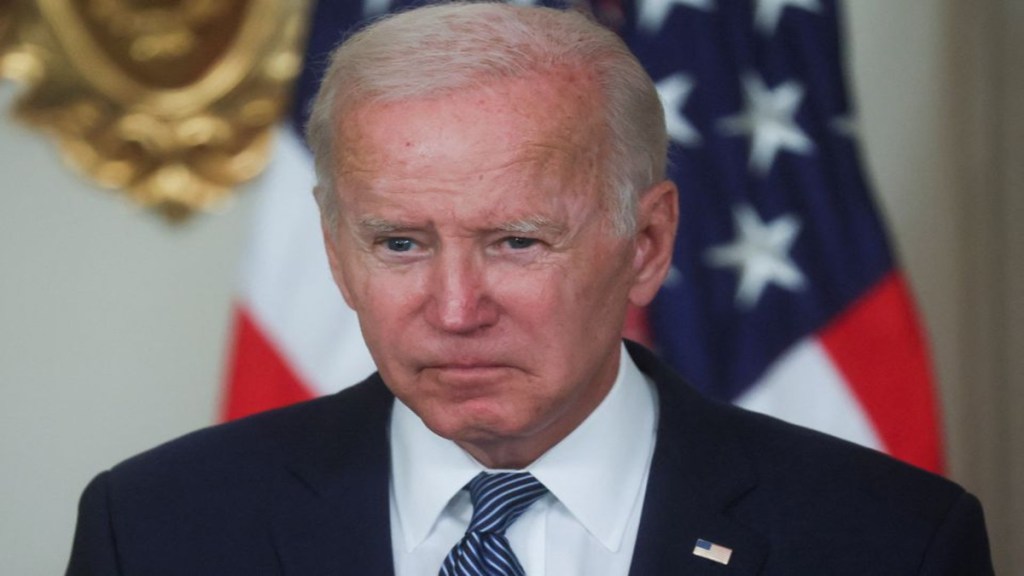President Joe Biden is embarking on a diplomatic mission to Israel and Jordan, scheduled for Wednesday. This visit aims to address the rising concerns that the ongoing Israel-Hamas conflict could potentially escalate into a larger regional crisis. U.S. Secretary of State Antony Blinken made the announcement regarding Biden’s travel as the humanitarian situation in the Gaza Strip deteriorates, with Israel considering a ground attack to root out Hamas militants responsible for a deadly assault.
Biden Solidifying Support for Israel?
Biden’s visit to the region signifies the United States‘ strong backing of Israel during these tumultuous times. The Biden administration has pledged military support, including sending U.S. carriers and aid to the affected area. Additionally, they plan to seek congressional approval for over $2 billion in additional aid, allocated for both Israel and Ukraine, which is grappling with Russia’s invasion. This visit is not only a demonstration of unwavering support but also an opportunity for Biden to reinforce his national security credentials to American voters, with the 2024 election on the horizon.
Balancing Act: Regional Politics and Humanitarian Concerns
However, Biden’s presence in the region is not without its challenges. It could be perceived as a provocative move by Iran, a key sponsor of Hamas, and could potentially be viewed as insensitive by Arab nations, especially as civilian casualties in Gaza continue to mount. Blinken has been actively engaging with regional leaders to prevent the Israel-Hamas conflict from triggering a broader regional crisis.
Diplomatic Meetings with Key Players
Biden’s trip will include meetings with Israeli and Arab leaders to gain insights into Israel’s war aims and strategies and to understand their approach to minimizing civilian casualties while ensuring humanitarian aid reaches the people of Gaza. This diplomatic initiative also extends to Jordan, where Biden will meet with King Abdullah II, Egyptian President Abdel Fattah el-Sissi, and Palestinian President Mahmoud Abbas. The focus will be on the urgent need for humanitarian aid to flow into Gaza, as the situation there is dire.
International Concerns and European Involvement
International concern about the Israel-Hamas conflict has been growing. European Union leaders are convening an emergency summit to address potential spillover effects of the conflict into Europe, including a potential influx of refugees. During a phone call with Egypt’s President el-Sissi, Biden discussed the situation, as well as similar conversations with other world leaders, including the Iraqi Prime Minister and the German Chancellor.
Iran’s Warning and Escalating Rhetoric
Iran, a significant financial sponsor of Hamas militants, has issued warnings about potential preemptive action if Israel proceeds with its looming ground offensive in Gaza. The situation remains tense, with Iran being a key player in the region. Despite concerns, the U.S. has not observed direct Iranian involvement in the ongoing conflict.
Israel’s Northern Border Concerns
Israel is also on high alert regarding the potential for conflict on its northern border with Lebanon, where it has had confrontations with the Iranian-backed Hezbollah group. The military has ordered residents in border communities to evacuate in anticipation of possible hostilities.
Biden’s Ongoing Consultations and Briefings
Biden‘s decision to delay a domestic visit and his ongoing consultations with world leaders and his national security team underscore the gravity of the situation. His engagement in addressing the humanitarian crisis and preventing the Israel-Hamas conflict from expanding into a broader regional crisis remains a top priority.
Diplomacy, Support, and Challenges
While Biden’s visit aims to demonstrate U.S. support for Israel and address critical regional concerns, it also underscores the delicate balance required in managing regional politics, humanitarian concerns, and the potential for further escalations in the Middle East.
(With AP Inputs)


